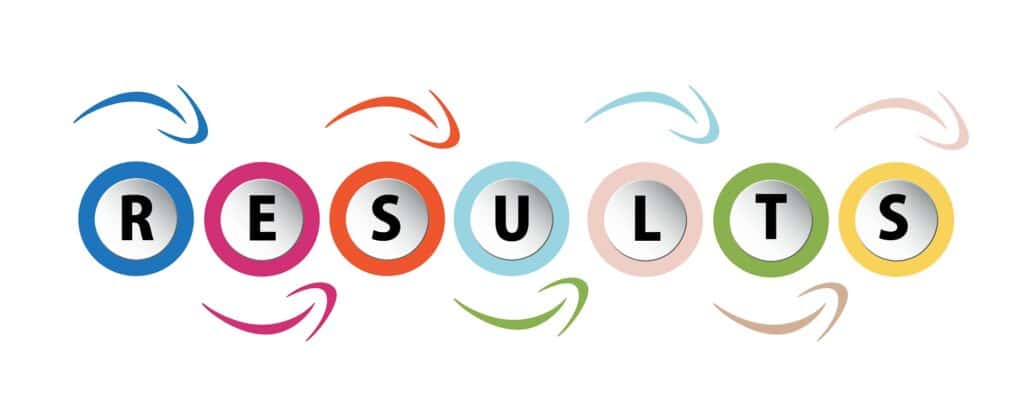The start of a school year is much like an anniversary or a birthday. Often exciting and energising, it’s also a reflective and thoughtful occasion, as we can see each year in the broad perspective of wider social changes.
For us, 6000 students filling the halls with banter and laughter certainly brings the usual high energy, and I hope all our new and returning children – and staff – have had a wonderful week. And as I browse the notes from the network of fellow Heads around the world, it’s hard not to be struck by the global volume and the ambition of education. More than at any time in the history of humanity, schools are seeking to provide children with the foundations for successful and flourishing lives. In all but a handful of countries, education is regarded as a basic right for all children, regardless of background, race or gender. That’s a relatively new thing, in the broad sweep of history, and never have so many resources and so much care been devoted to the development of the minds of the next generation. There’s a lot to be proud of there, as education for all is a foundational plank of creating a better world.
So as I browsed in a bookshop over the break, What They Forgot to Teach you at School was a title that jumped out at me. Not the usual pitch that we teach coding, finance or AI, it was a far more timeless consideration of what might help an adult through life’s inevitable vicissitudes. And it certainly does seem there is a need. Harvard Professor Arthur Brookes notes that in the US, 38 percent of respondents aged 12 to 26… received a formal diagnosis of anxiety …even among those who have not received a diagnosis, about half say they often feel anxious. In this I imagine the US is a special case, as in so many areas, but those are astonishingly large numbers by any measure, and the rest of the world is seeing similar issues. It’s increasingly clear that social media is part of the problem, as Jon Haidt has compellingly articulated in his recent book The Anxious Generation. So families and schools need to pay attention to this (and we are). But there has to be more to it than simply exposure to screens – as some people seem immune to the baleful effects, others especially vulnerable. So I read this with great interest. What might we have forgotten?

I doubt anyone could read the table of contents and not see a few items, at least, of immense value. And while it’s probably true that not all of these items can be covered at school and need to be left to families – there are many cases where these items do feature here at UWCSEA, and indeed at most schools. ‘Be Kind’, ‘Manage your Moods’, ‘Repair Relationships’, ‘Aim for Emotional Maturity’, ‘There is always a Plan B’ – these are staples of our Personal and Social Education (PSE) and Service, Sustainability and Peace (SSP) curricula. More importantly, we strive not only to advocate for these things, but also to model them in all our interactions. At root, these are attitudes to life – values which may be better caught not taught, as the saying goes. If we want kids to be kind, then we must show them kindness. If we want them to value relationships then we need to spend time on those and seek to show (as well as tell) students how to repair damaged relationships.
Some chapters are important but perhaps not so much at school level – ‘Be More Selfish’ or ‘Give Up on People’ for example. As an adult (especially as a partner or parent), you know what these mean – that it’s OK to consider your own needs, that you cannot keep pouring from an empty cup, that not all relationships can last forever. But given the naturally ego-centric nature of children, it’s rare that we need to help students toward these particular pieces of wisdom; on the contrary, ‘be less self-centred’ and ‘don’t give up on people’ more often guide our approach – especially for younger students.
So this book contains great advice (I recommend it without reservation) even though it’s not really a book about schools per se, and more about life in general. There is, though, one particular chapter that is worth pondering at the start of the year: ‘Others are a lot like you’. It’s not something that’s always at the forefront of our minds – we tend to talk about individuality, and respect for differences. We try to sensitise children to the ideas that people with differing identities or backgrounds might see the world rather differently; that way lies empathy and human connection. There is a slight danger though; that (as the book states) we may end up with a ‘highly siloed and hesitant view of other humans. … who may become ‘ineluctably alien’ and with whom we may feel we have little in common, and hence precious little chance of friendship, and even less chance of solidarity and connection. If we think that only differences are foundational, we may be disinclined to mix with anyone dissimilar to ourselves. That is, of course, how stereotypes like the maths nerds, the sports jocks, the arty thespians emerge. And it’s one reason (there are others) why students and adults sometimes cluster in nationality groups.
So as we start a new school year, it seems to me that with all the new students, new teachers, new parents, new classes, new teams and new situations, the idea of difference, while important at times, can actually cause a lot of unnecessary anxiety and make us feel more lonely and isolated than we need to be. We may, for no good reason …miss out on friendships with an older or younger person because we have prejudged them to be monstrously different, when they are, in fact, just a slightly time-adjusted version of our own selves…. we may lose confidence [when a] poised and charming person opposite us [appears to] share none of our insecurities. Or we may readily impute to a much wealthier person feelings of superiority, arrogance and innate solidity they have never experienced. It applies to adults too: We may withdraw… out of a feeling that we are impostors, when in reality everyone in the office is essentially as scared and uncertain as we are. When we entertain impressive people we don’t know too well, we may end up coming across as [overly formal] and over-polite, because we don’t dare to reveal any of the more playful and light-hearted sides of our characters, which we persuade ourselves can’t exist in a higher-status individual.
These may be natural human tendencies – but ones that we would be better off overcoming. We need to learn, and to help our children learn, to hold the equally valuable but contradictory ideas of difference and similarity in our minds at all times, hard though that may be. And in these early days of term, we may be better off guessing that people are more often like us than unlike us, and that they share similar likes and irritations. Whatever the risks of flattening others’ uniqueness, there is an equal risk in believing too strongly in our own singularity. On occasion, we should tread across the perceived gulf that separates us from the rest of humanity and simply guess that, probably, the other person is as bored as we are, or would quite like to have a laugh as much as we would. Or that they are as nervous as we have been – or as much in need of a friend.
We learnt over lockdown that the great value of school comes from people connecting with each other. Faith in our shared humanity is the root of this. Perhaps some things are better learnt, not taught (as paediatrician John Gall put it Experience isn’t hereditary—it ain’t even contagious!) – if so, as parents and teachers all we can do is to open loving and respectful conversations with our kids. We can have faith that their affection for us will allow them to at least partially understand what may otherwise take decades of life experience to learn. The great joy and the great tragedy of the human condition is that we have to figure out the really important stuff for ourselves. It’s a joy, because building our independence for ourselves is what forms us. Most of us would certainly not trade that – grave mistakes and all – for simply following our parents’ or teachers’ instructions. And it’s a tragedy because as well as making our own mistakes, we often have to suffer watching our children making theirs – often with a newfound appreciation of what we put our own parents through all those decades ago.
References
- Brooks, A. C (2024) The Best Therapy for Our Anxiety. The Atlantic
- Gall, J (2016) Systemantics: The Systems Bible. D.H. Gall
- Haidt, J (2024) The Anxious Generation. Penguin Press
- n.a (2021) What they Forgot to Teach you at School. School of Life



10 Responses
Thank you Nick for sharing this thoughtful blog. I am a strong believer of lead by example, not that I am always right in the approaches I proposed but I am willing to experimenting and adjust to find the methods or mode that is acceptable for both the children and myself. There are times I wanted my kid to accomplish things that I couldn’t accomplish but I come to a realization you couldn’t shape someone if you haven’t demonstrated it yourself. The biggest accomplishment I would say since I joined UWCSEA is: I am growing and learning together with my kid even at bite-size of improvement or shift in mindset.
I should visit this blog more often!!
What a wonderful reminder. Thanks for the recommendation too.
Thank you!
Thank you Arthur! I couldn’t agree more; we parents learn a great deal by parenting our kids. Thank you for your kind words.
Thank you Nick… For taking the time to pen this very helpful note.
🙂 Glad it was helpful 🙂
A timely reminder and reinforcement. Very helpful, Nick. Thanks for sharing !
Excellent starting note, thank you for sharing it! On the topic of differences vs similarities, in my own experience this has been especially in religions. Often time we are told the differences only, what a pity, when there are so many common themes to unify us, rather than divide us.
🙂 Hope term has started well for you!
Yes, we take the commonalities for granted. But we can only do so for so long until it become a problem, and I think (in many countries we are definitely at that stage.